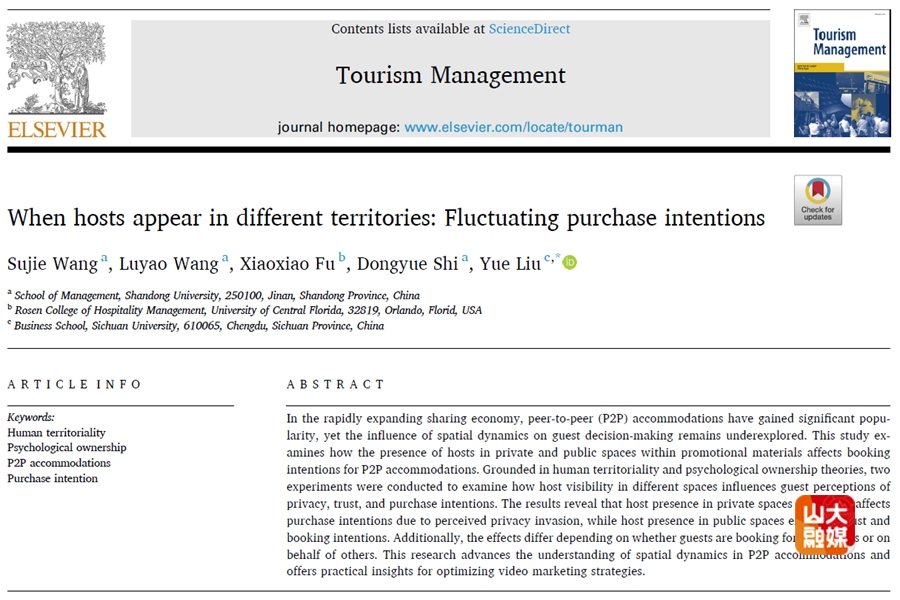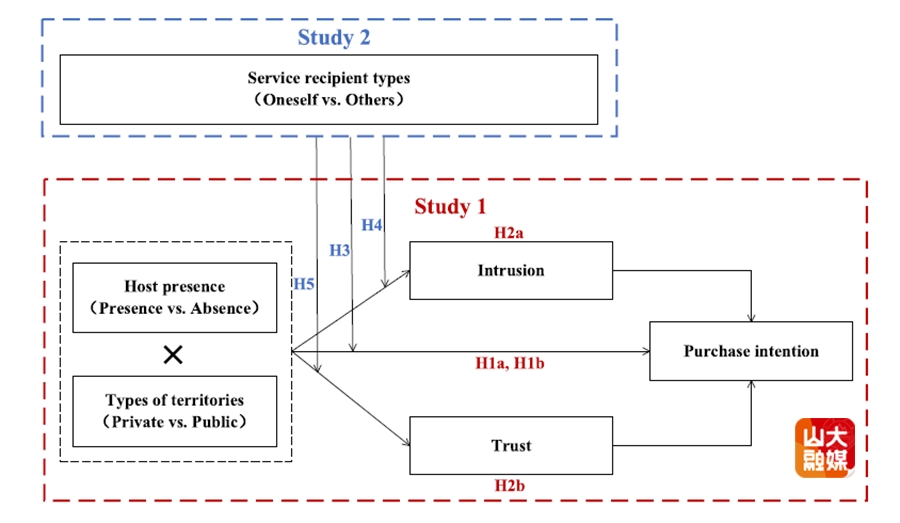Recently, the latest research by Associate Professor Wang Sujie’s team at the School of Management, Shandong University, titled“When hosts appear in different territories: Fluctuating purchase intentions”, was published online in Tourism Management (SSCI Q1, Impact Factor 10.9, ABS 4-star journal). Associate Professor Wang Sujie is the first author, Wang Luyao, a postgraduate student at the School of Management, Shandong University, is the second author, Associate Professor Xiaoxiao Fu from the University of Central Florida is the third author, and Shi Dongyue, a postgraduate student at Shandong University, is the fourth author. Liu Yue, a doctoral student at Sichuan University, is the corresponding author.

Peer-to-peer (P2P) accommodation refer to a shared accommodation model that constitutes a significant part of the sharing economy. By transforming private residences into shared commercial spaces, such accommodations emphasize space exchange as their core transaction feature. This study draws upon territoriality theory and psychological ownership theory to investigate how the presence of hosts in different spaces affects guests’ perceptions of privacy, trust, and purchase intentions. Two experimental studies were conducted. The results show that when hosts appear in private spaces, guests perceive a greater invasion of privacy, which negatively impacts their intention to book. In contrast, host presence in public spaces increases guests' trust and strengthens their booking intentions. Furthermore, these effects differ depending on whether guests are booking for themselves or on behalf of others. This study unveiled how environmental and social factors interact to influence booking intentions, emphasizing the importance of human factors and spatial environments when studying consumer behavior.

This interdisciplinary integration has expanded the application scope of territoriality and psychological ownership from the field of tourism research to a broader range of service industries involving shared spaces. Furthermore, by introducing psychological simulation as a driving factor for pre-stay territoriality, this study significantly advanced the application of psychological ownership theory and established a new temporal dimension within territoriality theory, namely the pre-consumption phase. The findings also provided practical insights for optimizing video marketing strategies in the peer-to-peer accommodation sector.